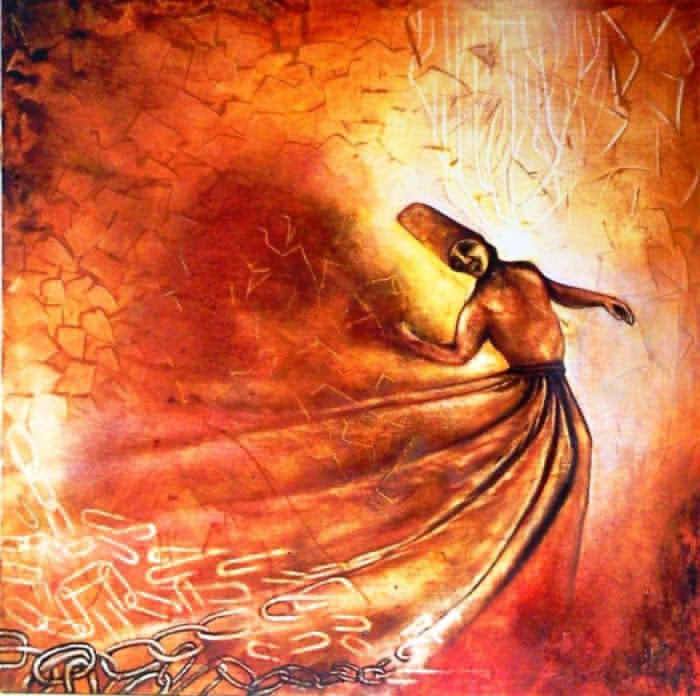What is God?
The Spirit Group met last Sunday and this time the topic was What is God? The answer is not so simple. If someone walks up to you and asks, “Do you believe in God?” – most of you will stumble for an answer, because it is not so simple. If you’re like me, and were raised in a religion, in my case Judaism, but you no longer are observant, then you hem and haw over the first question – what is God? So we decided to talk about answering that question first.
The other day, during the Oscar awards, Matthew McConaughey thanked God for his win – the way he couched God was by referring to a quote – “if you’ve got God, you got a friend, and that friend is you.”
What does that mean? Reductively that God is you?
I’ve been compiling a prayer/inspiration journal because after more than half a century of saying the same prayer my mother taught me, I decided to find a more positive way to frame my gratitude and prayer. “Dear Lord forgive me if I have this day, done any wrong in work or play, always help me to do what’s right and watch over me all through the night.” For some reason, that just doesn’t do it for me even after saying it religiously (pardon the pun) for over fifty years. I looked at many prayers that are already in existence and the one that came closest to what I wanted to say was the 23rd Psalm. There is also a beautiful prayer in Judaism that is said upon awakening called Modeh Ani, thanking god for giving us back our soul because when we drift into that other world it is thought that our soul travels back to god to be repaired – this goes hand in hand with the new research about how dreams sweep clean our brain’s hard drive – again metaphor?
In the journal I’m composing, I wrote a few definitions of God that had sprung up in my readings:
God is a way of life
God is I AM
God is a metaphor for that which transcends all level of intellectual thought
God is the Power of Life itself.
The word God has become so maligned in our culture because we have grown weary of folks fighting in the name of God, hating in the name of religion, and dying and taking others with them for their almighty God.
It all really gives God a bad name.
I got an audio book of Wayne Dyer’s The Power of Intention the other day and was listening to it on a walk with Heidi. Dyer says:
Carlos Castenada said there’s an immeasurable, indescribable force which shamans called “intent” and absolutely everything that exists in the entire cosmos is connected to it. You can call it spirit or soul or consciousness or universal mind or source. It is the invisible force that intends everything into the universe. It’s everywhere. This source is always creating, it is kind, it is loving, it is peaceful. It is non-judgmental, and it excludes no one.
In the Old Testament it says, “In the beginning, God created heaven and earth and everything that God created was good.” That leaves nothing out. So good and God are what it means to be connected to our source. If you go to the Gnostic Gospels — you know, the gospels that Constantine in the fourth century decided shouldn’t be in the New Testament — if you study the Gospel of Mary Magdalene and the Gospel of St. Thomas, they don’t refer to God as God, they refer to God as the “The Good.”
Whenever we are in harmony with that source from which we all emanated, which everything came from, we have the powers of the source. And when we let go of our connection and rusty up the link between ourselves and this connection, dirty it up by living at the lower levels of consciousness, then we create things like illness and poverty and sadness and fear and hatred.
We have to take a look at every single thought that we have and ask ourselves, “Is it in harmony with source or isn’t it?” Any thought that isn’t loving, any thought that is filled with hatred, is a thought that is inconsistent with, not in rapport with source.
The next time our group meets we are going to take up the question again because the answers only generated more questions. When I said “Why can’t we say a resounding yes when asked if we believe in God” – one answered, “Because that is saying yes to his God, and I wont do that.”
The word God is divisive and if you feel as I do that God is you and me then you can’t really know another’s God unless you are using universal metaphors – to know someone else’s God would be like saying you know the entirety of that person which is impossible, so I get what she meant – I won’t say yes to his God – but I do want to understand our God – the god who connects us to each other – the One Love God – the God is Love god.
As I said, our group will have to revisit this question in our next meeting – please chime in if you have any thoughts about this subject – I’d love to hear from you no matter what your framework is about God.
